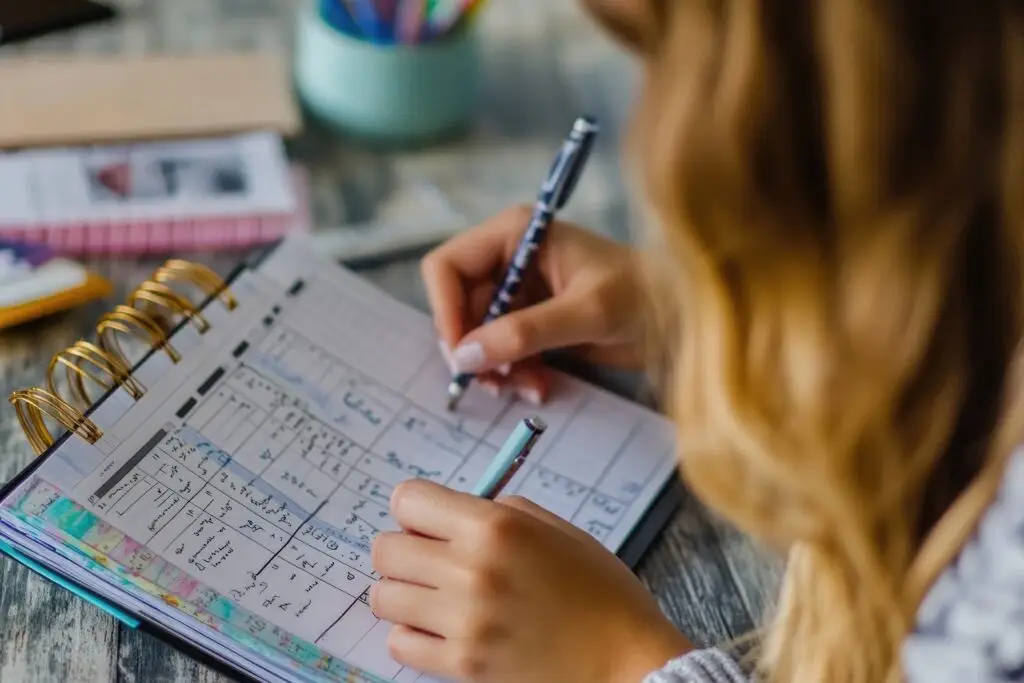Kickstart Your Organized Life Today!

Small Steps. Big Shifts. A Saner, More Organized Life Starts Now Ever found yourself scrambling to find your keys—again—or digging through a pile of mail to locate an overdue bill? You’re not alone. Clutter and disorganization have a sneaky way of sabotaging our productivity, elevating stress, and draining mental energy. If you’ve ever wondered how I can organize my life when things feel too chaotic, without feeling overwhelmed or losing momentum, you’re in the right place. The good news? You don’t need to be naturally meticulous or invest in a fleet of matching storage bins. What you do need are practical strategies grounded in psychology and behavior science—and a willingness to take small but consistent steps. In this guide, we’ll explore realistic, evidence-based steps to organize your life. Whether you’re trying to organize everything all at once or wondering how to organize your life in one week, you’ll find doable, motivating strategies here. , evidence-based organizing tips and strategies to help you reclaim your time, reduce friction in your daily routine, and cultivate the clarity you need to thrive—not just for a day or two, but for the long term. The Time We Lose to Disorganization Most of us underestimate the cumulative impact of disorganization. The average person spends close to an hour a day looking for misplaced items. Over the course of a year, that’s over 180 hours—the equivalent of two full workweeks. Now consider this: what would your week look like with an extra hour a day? That’s time you could invest in your studies, career development, hobbies, wellness, or simply decompressing. Disorganization doesn’t just cause minor annoyances—it undermines your ability to function at your best: It delays your decision-making It introduces cognitive friction It disrupts your routines It exacerbates anxiety and stress A Closer Look at the Costs The costs of clutter are multifaceted: Emotionally, it generates a low-grade background stress that’s difficult to turn off Financially, it leads to late fees, missed deadlines, and unnecessary repurchases that derail your financial goals Cognitively, it consumes bandwidth that could be better spent on meaningful pursuits It also compromises creativity, impedes learning, and, in some cases, contributes to feelings of shame or helplessness. For students or young professionals, these effects compound under pressure. No wonder so many of us find ourselves stuck in a loop, struggling with overcoming procrastination and overwhelm whenever we consider getting our lives organized. Why Getting Organized is a High-Leverage Move Before we get into the personal benefits, it’s worth taking a look at what the research says. Study after study confirms that clutter doesn’t just crowd your home or workspace—it clouds your brain. A UCLA study of dual-income families found a direct link between high cortisol levels (a stress hormone) and the density of household objects. In short: more stuff equals more stress, especially for women. Research published in the Personality and Social Psychology Bulletin found that individuals who described their homes as “cluttered” or “unfinished” experienced more depressed moods throughout the day than those who described their homes as “restful” and “restorative.” Meanwhile, researchers at Princeton University Neuroscience Institute discovered that physical clutter in your environment competes for your attention, resulting in decreased performance and increased stress. The conclusion? Your brain functions better in an organized space. Productivity experts agree. According to a 2022 report from the National Association of Productivity & Organizing Professionals (NAPO), people who develop simple organizing systems increase their efficiency by up to 30%. That’s not a nice-to-have—that’s a game-changer. These insights reinforce what you probably already feel in your gut: when your environment is clean and streamlined, it’s easier to think, create, and connect. So what’s the upside? Why is getting started with organizing—a concept that lies at the heart of building sustainable change worth your time? 1. You Gain Back Control Over Your Time Even reclaiming 30 minutes a day results in over 180 hours a year—time that can be redirected toward academic progress, professional goals, meal planning, or meaningful self-care. 2. Your Mental Load Lightens Clutter creates decision fatigue. When your physical space is in disarray, your mind mirrors that chaos. Organizing your environment leads to: Improved executive function Sharper focus Greater sense of autonomy and competence Tangible benefits to mental health 3. Your Relationships Improve When your environment is more intentional, communication becomes smoother, tensions decrease, and you show up with greater presence and bandwidth for the people in your life. 4. You Create a Growth-Oriented Environment Discipline doesn’t thrive in chaos. When your physical environment is organized, your internal environment is primed for growth—whether that’s learning a new skill, setting a personal goal, or launching a creative project. You’ll not only be able to stay on top of your tasks, but also develop the kind of habits that support your long-term goals. The Psychology of Organization: Why It Feels So Hard to Start Getting organized isn’t as simple as making a to-do list. It often involves: Letting go of sentimental attachments Facing avoided decisions Acknowledging bad habits that no longer serve you Which is why organizing isn’t just a physical act—it’s a psychological one. That stack of unread mail? It might represent financial decisions you’ve been avoiding. That overflowing closet? A lingering attachment to a former version of yourself. If getting started with organizing feels like a mental block, you’re not imagining it. There’s also the paradox of perfection: waiting until you can do it “right” often results in doing nothing at all. Fortunately, there are strategies for overcoming procrastination and overwhelm that make the process approachable and even rewarding. Common Emotional Barriers to Getting Organized 1. Fear of Letting Go Sometimes the hardest part isn’t figuring out where to start—it’s parting with things that have meaning. You might keep something “just in case” or because it holds a memory. But it’s worth asking: is this item serving your present life or anchoring you to the past? 2. Perfectionism If you’ve ever delayed organizing because you couldn’t do it perfectly, you’re not

